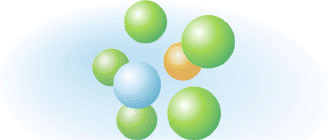We previously showed that gene expression profiling of Philadelphia chromosome positive ALL blasts accurately distinguishes between Imatinib-responsive and -resistant patients. We will utilize oligonucleotide microarray analysis of leukemic cells from uniformly treated B- and T-precursor ALL patients to identify gene expression signatures predictive of clinical outcome, to identify molecular mechanisms of resistance to specific treatment modalities, and to elucidate molecular mechanisms causally involved in leukemic transformation of ALL. As only a minority of adult patients but the majority of children with ALL is cured with similar therapies, a comparative analysis of adult and pediatric ALL will be performed to identify the molecular mechanisms underlying these differences in treatment outcome. Gene expression data sets from adult and pediatric ALL patients will be compared to identify common or divergent signatures with the additional aim of identifying novel therapeutic targets. STI571 (Imatinib) has become the paradigm for targeted molecular therapy of Bcr/Abl positive leukemias, but resistance is frequent.
To more precisely elucidate the molecular pathways functionally involved in resistance and to identify novel therapeutic targets, we will examine ALL cells by gene expression profiling and proteomics in relation to the functional characteristics of leukemic cells.


